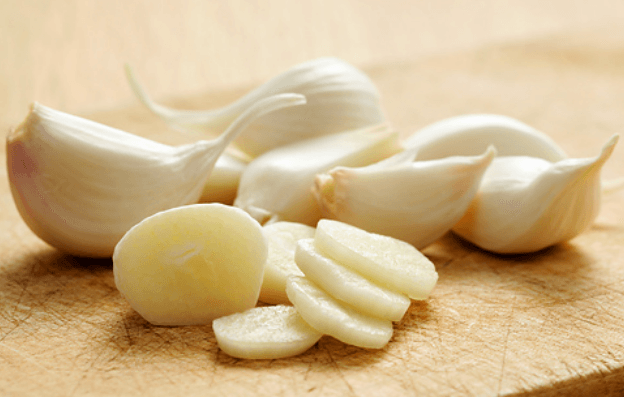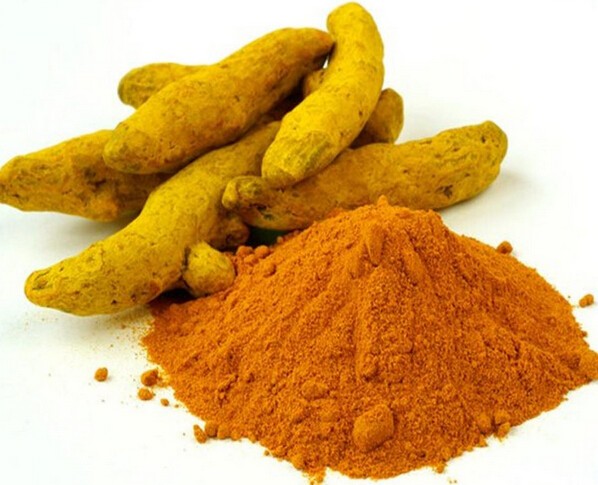Toothaches can be incredibly painful and disruptive. It can make eating, sleeping, or concentrating on daily activities difficult. While it’s important to seek professional dental care for severe toothaches, several natural home remedies can provide temporary relief. This article will explore 15 effective and natural remedies for toothaches.
Common causes of Toothache
Here are some common causes of toothaches:
- Tooth decay: Cavities or dental caries occur when the enamel (outer layer) of the tooth is damaged, leading to tooth decay. This can cause sensitivity and sharp pain.
- Dental abscess: An infection forms at the tooth’s root or between the gum and tooth. It can cause severe throbbing pain, sensitivity to hot or cold temperatures, and swelling.
- Gum disease: Also known as periodontal disease, it affects the gums and tissues surrounding the teeth. Gum disease can cause gum inflammation, bleeding, and tooth pain.
- Tooth fractures or cracks: Teeth can become cracked or fractured due to trauma, biting hard objects, or grinding teeth. This can result in tooth sensitivity or sharp pain when chewing.
- Tooth sensitivity: Exposed tooth roots, worn enamel, or gum recession can lead to tooth sensitivity. Consuming hot or cold foods and beverages can trigger sharp pain or discomfort.
- Impacted wisdom teeth: When wisdom teeth do not have enough space to emerge or grow in an abnormal position fully, they can become impacted, leading to pain, swelling, and infection.

15 Natural Home Remedies for Toothache Relief
1. Saltwater Rinse: Soothe and Cleanse
A saltwater rinse is one of the simplest and most effective remedies for toothache. Dissolve half a teaspoon of salt in eight ounces of warm water and swish it around your mouth for 30 seconds before spitting it out.
Saltwater helps reduce inflammation, kill bacteria, and cleanse the oral cavity, temporarily relieving toothache symptoms. Repeat this remedy several times daily to maintain oral hygiene and soothe discomfort.
2. Clove Oil: Nature’s Anesthetic
Clove oil has been used for centuries as a natural remedy for toothaches due to its anesthetic and antibacterial properties.
Eugenol, the active compound in clove oil, numbs the affected area and reduces pain. Add a cotton ball in clove oil directly to the affected tooth or gums for temporary relief.
Remember to dilute the clove oil with a carrier oil, such as olive or coconut, to prevent irritation.
3. Garlic: Powerful Antibacterial Agent

Garlic is a potent natural antibiotic with antimicrobial properties that can help combat tooth infections and alleviate pain.
Crush a garlic clove and mix it with a pinch of salt to form a paste. Apply the paste to the affected area, allowing the garlic’s natural compounds to work magic. However, be cautious; garlic may cause a burning sensation, so use this remedy sparingly.
4. Peppermint Tea: Cooling Relief
Peppermint tea contains menthol, which possesses cooling properties that can numb the area and reduce toothache discomfort.
Steep a peppermint tea bag in hot water for a few minutes, then allow it to cool. Apply the cooled tea bag directly to the affected tooth or gums for soothing relief.
Additionally, sipping peppermint tea can provide overall relaxation and alleviate the stress associated with tooth pain.
5. Onion: Natural Antimicrobial
Onions have natural antimicrobial properties that can help combat bacteria causing tooth infections. Cut a small piece of onion and place it directly on the affected tooth or gums.
Allow the onion’s juices to penetrate the area, relieving pain and inflammation. However, the pungent smell and taste of onions may not be pleasant, so rinse your mouth afterward.
6. Hydrogen Peroxide: Disinfect and Reduce Pain
Hydrogen peroxide is a common household antiseptic that can help reduce pain and disinfect the affected area.
Create a solution by mixing equal parts of 3% hydrogen peroxide and water. Swish the mixture around your mouth for 30 seconds, ensuring it reaches the affected tooth or gums.
Spit out the solution and rinse your mouth thoroughly with water. Use this remedy sparingly and avoid swallowing the solution.
7. Turmeric Paste: Anti-Inflammatory Aid

Turmeric contains curcumin, a compound known for its anti-inflammatory and antimicrobial properties.
Make a paste by mixing one teaspoon of turmeric powder with a small amount of water. Apply the paste to the affected area and leave it on for 15 minutes before rinsing.
Turmeric paste can help reduce inflammation, relieve pain, and promote healing. However, be cautious, as turmeric can stain clothing and surfaces.
8. Vanilla Extract: Aromatic Pain Relief
The sweet aroma of vanilla extract uplifts your mood and provides temporary relief from toothache. Soak a cotton ball in pure vanilla extract and hold it against the affected tooth or gums for a few minutes.
The alcohol content in vanilla extract can help numb the area and alleviate pain. Repeat this remedy as needed for quick and aromatic relief.
9. Ginger Root: Soothing Properties
Ginger root possesses natural anti-inflammatory and analgesic properties that can help ease toothache discomfort.
Cut a fresh ginger root into small pieces and chew on them gently, allowing the juices to reach the affected area.
Alternatively, you can make ginger tea by steeping grated ginger in hot water for a few minutes. Sip on ginger tea to enjoy its soothing effects and alleviate toothache symptoms.
10. Guava Leaves: Natural Analgesic
Guava leaves have been used traditionally as a natural remedy for toothache due to their analgesic and antimicrobial properties.
Chew on fresh guava leaves or crush them to extract the juice and apply it to the affected tooth or gums. The natural compounds in guava leaves can help reduce pain and prevent infection. Rinse your mouth afterward to remove any residue.
11. Cucumber: Cooling and Hydrating
Cucumbers are refreshing and hydrating and can provide temporary relief from toothache.
Cut a fresh cucumber into slices and hold them against the affected area, allowing the coolness to soothe the pain.
Additionally, chewing on cucumber slices can stimulate saliva production, promoting oral health and reducing dryness that may exacerbate toothache discomfort.
12. Aloe Vera Gel: Soothe and Heal
Aloe vera gel has soothing and healing properties that can alleviate toothache symptoms. Apply a small amount of pure aloe vera gel to the affected tooth or gums for temporary relief.
Aloe vera can help reduce inflammation, numb the area, and promote healing. However, make sure to use pure aloe vera gel without added sugars or flavors.
13. Acupressure: Pressure Points for Toothache Relief
Acupressure is an ancient healing technique that involves applying pressure to specific points on the body to relieve pain and promote well-being.
To alleviate toothache, apply firm pressure to the webbed area between your thumb and index finger using your opposite thumb and index finger. Massage the area in a circular motion for a few minutes to stimulate the release of endorphins, the body’s natural painkillers.
14. Wheatgrass Juice: Natural Antibacterial
Wheatgrass juice is known for its potent antibacterial properties and can help combat tooth infections.
Rinse your mouth with wheatgrass juice for a few minutes, ensuring it reaches the affected tooth or gums.
Spit out the juice and rinse your mouth thoroughly with water afterward. Wheatgrass juice can help reduce pain and prevent bacterial growth, promoting oral health.
15. Tea Tree Oil: Antiseptic Solution
Tea tree oil is a powerful antiseptic with antimicrobial properties that can help alleviate toothache symptoms. Dilute a few drops of tea tree oil in a carrier oil, such as olive or coconut oil.
Using a cotton ball, apply the diluted oil mixture to the affected tooth or gums. The tea tree oil’s natural compounds can help reduce inflammation, fight infection, and temporarily relieve pain.
Frequently Asked Questions
1. Can a toothache go away on its own?
While some toothaches may subside on their own, it’s essential to seek dental care for a proper diagnosis and treatment. Toothaches can indicate an underlying dental issue that requires professional attention. Ignoring a toothache can lead to worsening pain and potential complications.
2. How long can a toothache last?
The duration of a toothache can vary depending on the cause and severity of the underlying issue. In some cases, toothaches may last a few hours, while others may persist for days or weeks. It’s crucial to consult a dentist to identify the cause of the toothache and receive appropriate treatment.
3. Is it safe to apply clove oil directly to the tooth?
Clove oil can temporarily relieve toothache when applied directly to the affected tooth or gums. However, diluting clove oil with a carrier oil before use is important to prevent irritation. Excessive use of undiluted clove oil can cause burning or damage oral tissues.
4. Can turmeric paste stain the teeth?
Turmeric paste may temporarily stain the teeth due to its vibrant yellow color. However, regular brushing and rinsing with water should help remove the stains. If you’re concerned about staining, consider using turmeric in moderation or consulting a dentist for alternative remedies.
5. How often should I use hydrogen peroxide for a saltwater rinse?
Hydrogen peroxide should be used for a saltwater rinse sparingly, as frequent use can cause irritation or damage to the oral tissues. Using a hydrogen peroxide solution once or twice a day is recommended. And always dilute it with water before rinsing your mouth.
How to Prevent a Toothache
To prevent toothache, it is important to maintain good oral hygiene and adopt certain habits that promote dental health. Here are some tips to help you prevent toothaches:
- Brush your teeth twice daily: Use a soft-bristled toothbrush and fluoride toothpaste to brush your teeth thoroughly for two minutes each time. Pay attention to all surfaces of your teeth, including the back molars and along the gumline.
- Floss daily: Regular flossing helps remove food particles and plaque from between your teeth and along the gumline. Be gentle when flossing to avoid injuring your gums.
- Use mouthwash: Rinse your mouth with an antimicrobial mouthwash after brushing and flossing. This helps kill bacteria and freshen your breath.
- Maintain a healthy diet: Limit your intake of sugary and acidic foods and beverages, as they can contribute to tooth decay. Instead, choose a balanced diet of fruits, vegetables, whole grains, and lean proteins.
- Stay hydrated: Drink plenty of water throughout the day. Water helps flush away food particles and moisten your mouth, reducing the risk of tooth decay and gum problems.
- Address dental problems promptly: If you experience any dental issues like tooth sensitivity or gum pain, don’t ignore them. Schedule an appointment with your dentist to address the problem before it worsens.






